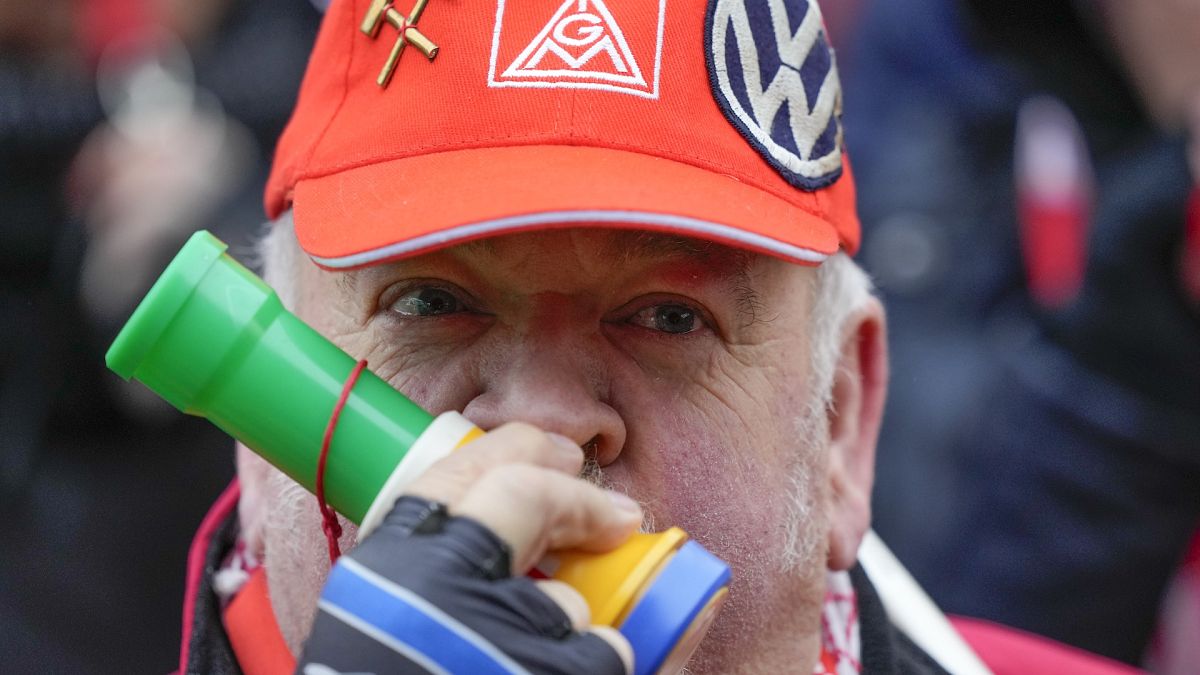Jobs
Volkswagen talks over future of plants and jobs at a ‘stalemate’

Workers at the car giant have been taking industrial action following VW’s revelations about the possibility of closing German plants and axing thousands of jobs. Volkswagen is struggling with falling sales in Europe, high labour costs and excess capacity.
Four days of talks between management and union leaders at car giant Volkswagen have failed to make progress, according to to a statement from workers union IG Metall.
“We regret that after four days of negotiations there is still a stalemate for the employees,” it said.
Despite the seemingly bad news, the union did say negotiations had advanced and that both parties had found common ground on several points. It also reiterated that talks had not been called off entirely, but simply stalled.
The car manufacturer’s majority stakeholder, the Porsche-Piëch family, has revealed their strong support for shutting down numerous German plants, according to Financial Times. The Porsche-Piëch family is the majority owner of the German holding company Porsche SE, which in turn, is a controlling shareholder in Volkswagen Group.
The support for factory shutdowns follows a proposal for reduced dividends suggested by German unions as a cost-cutting alternative to closing factories.
However, this proposal has caused the Porsche-Piëch family to be more worried about the company’s global competitiveness in the long run, while maintaining that trimming the business size is the way to go.
This is mainly due to Volkswagen currently struggle with issues such as falling European sales, as well as high labour costs and excess capacity.
The billionaire family has already highlighted that only a significant cost-efficiency measure will be accepted as a solution. Porsche SE has also revealed that it may be compelled to cut its stake in Volkswagen by almost 40%, because of the lack of financial planning data, as well as the ongoing uncertainty.
With the holding company facing a high amount of debt already, due to other investments, such as in Porsche AG, the impact of falling dividends, and a reduced Volkswagen stake could be significant in the long run.
Cut in dividends and bonuses ruled out by management
Volkswagen has already rejected a previous union proposal which suggested cutting dividends and bonuses, as well as working hours. These measures could have resulted in cost savings of approximately €1.5bn.
On the other hand, the car company’s suggested cost-cutting plans so far have included laying off thousands of German employees, as well as closing factories for the first time in the country and reducing pay by 10%. Volkswagen has also set a cost savings target of about €10bn.
The concern of potentially reduced dividends has also led to need for the Porsche-Piëch family to engage with the Volkswagen unions, despite previously trying to avoid doing so.
The wage negotiations between Volkswagen and German worker unions IG Metall and AG are now in their fifth round with negotiations being complicated and slow. Workers have already held industrial action twice over the past month.
Volkswagen hit by higher Chinese competition
One of the main reasons for slowing Volkswagen sales in Europe is due to higher competition from Chinese rivals such as BYD, Geely and SAIC. The competition is especially intensified when it comes to electric vehicles (EVs), as Chinese EVs are often sold in Europe at cheaper prices and come with relatively better features.
Although the recent EU tariffs on the above Chinese car makers could go some way in supporting domestic European car companies, some Chinese car makers have already started pivoting to hybrid vehicles to export into the EU, as those are not covered under current tariffs yet.










